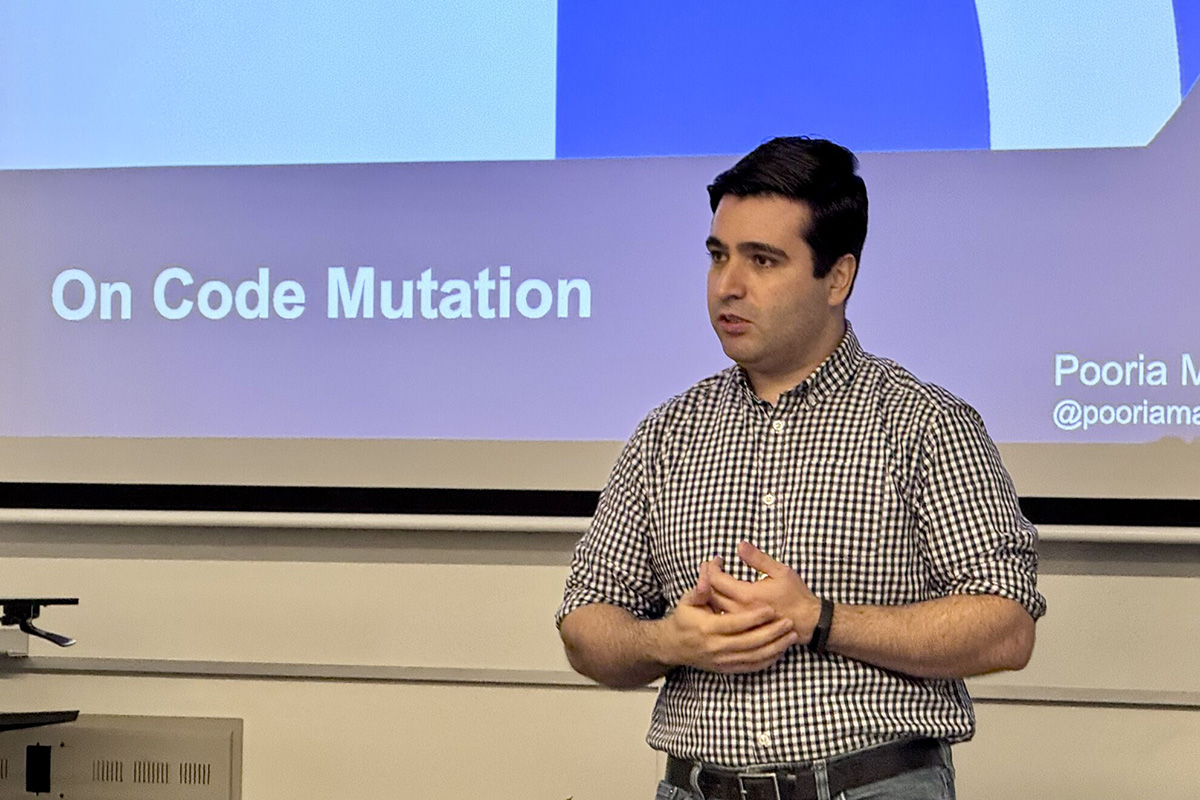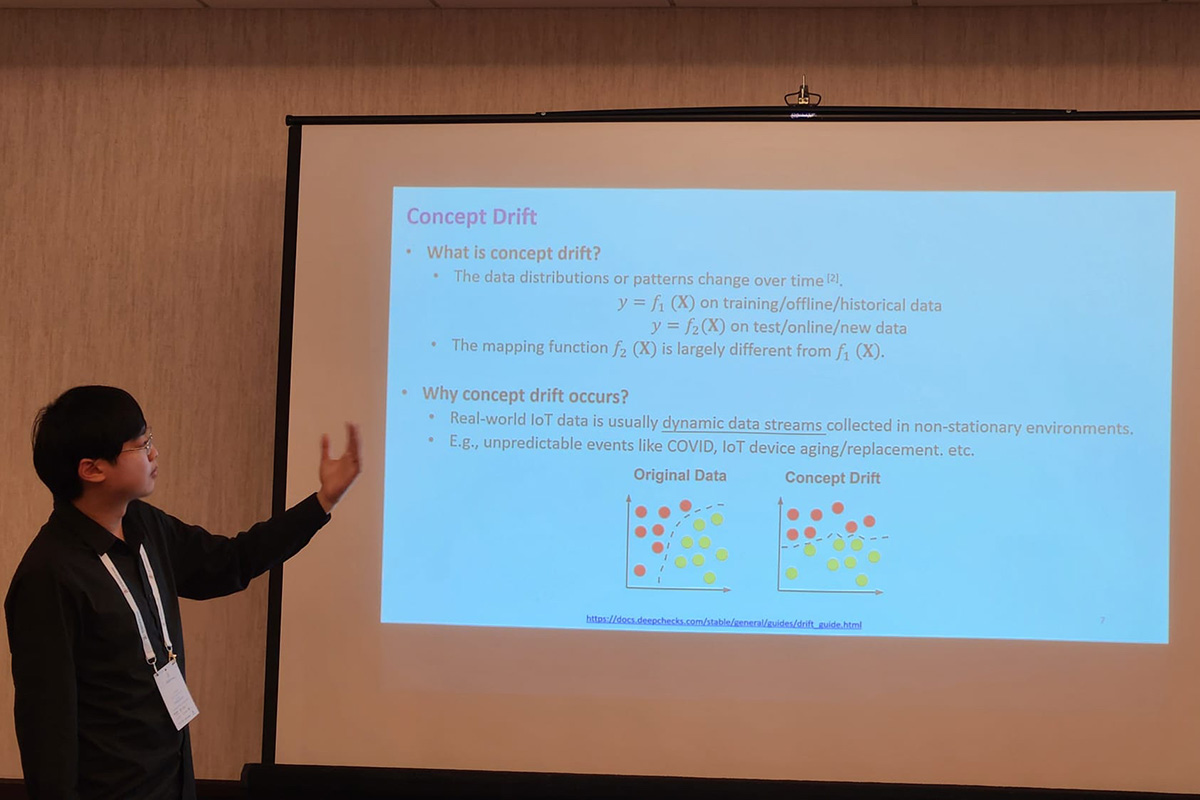Ontario Technological University’s cybersecurity research expertise is in the spotlight after the National Cybersecurity Consortium (NCC) announced approximately $560,000 in funding over four years for two new research projects at the university.
Ontario Tech projects supported by this program are conducted through the Institute for Cybersecurity and Resilient Systems, the university’s interdisciplinary global center focused on cybersecurity research, innovation, education, and advocacy. It focuses on the university’s important research. By focusing on real-world applications, Ontario Institute of Technology not only advances the state of cybersecurity research, but also contributes to safer and more reliable digital experiences for both individuals and organizations.
The funded initiatives highlight the university’s role as a leader in driving innovation to meet global cybersecurity needs and ensuring resilience and proactiveness against emerging threats. The two Ontario Tech projects are among 37 across Canada to receive a total of $22.8 million in funding this year under the NCC’s Cyber Security Innovation Network (CSIN) program.
Funded project: Strengthening the cybersecurity of electric vehicle charging infrastructure with autonomous and sustainable AI
Funded by NCC: $175,294.10
Principal Investigator: Dr. Li Yang, Assistant Professor, Faculty of Business and Information Technology (FBIT), Ontario Institute of Technology
Collaborators: Dr. Khalil El Khatib, FBIT Professor, Ontario Institute of Technology. Dr. Katarina Grolinger, Canada Machine Learning and Applied Engineering Research Chair, Associate Professor in the Department of Electrical and Computer Engineering at Western University. Ontario Institute of Technology Automotive Center of Excellence (ACE)
This project addresses the critical need for robust cybersecurity at electric vehicle (EV) charging stations essential to energy and transportation networks. As EV adoption increases, traditional cybersecurity mechanisms such as intrusion detection systems (IDS) struggle to counter evolving cyber threats due to their limited adaptability, high energy demands, and centralized architecture. . The project uses advanced artificial intelligence (AI) technologies such as AutoML, TinyML, and federated learning techniques to develop an autonomous, optimized, sustainable, and privacy-enhanced IDS. Revolutionizing EV charging station security. These innovations enable real-time, energy-efficient, distributed threat detection to ensure network stability, protect consumer data, and support the expansion of clean energy solutions. By strengthening the security of EV charging stations, this research will increase public confidence in EV infrastructure, support smart city development, support Canada’s transition to electric mobility, and improve the economic, social and environmental brings great benefits to.
Transformative Enemies: Leveraging Pre-Trained Generative Transformers to Develop Next-Generation Metamorphic Malware Engines
Funded by NCC: $382,352.94
Principal Investigator: Dr. Puglia Madani, Assistant Professor, FBIT, Ontario Institute of Technology
Collaborators: Dr. Jeremy Bradbury, Professor, Faculty of Science, Dr. Khalil El Khatib, Professor, FBIT, Ontario Institute of Technology, and Dr. Natalja Vlasic, Associate Professor, Lassonde School of Engineering, University of York.
This project explores how generative pretrained transformer (GPT) models can be used for both offensive and defensive purposes to strengthen future cyber defenses against the advanced and evolving threat of malicious code mutations. I will investigate whether it is possible. Metamorphic malware is a type of malicious software that rewrites or “mutates” its code structure each time it runs or infects a system. Metamorphic malware is both stealthy and highly lethal due to its ability to change its structure while retaining malicious functionality, making it a major challenge in evading traditional detection methods. . Recent advances in AI, particularly GPT models (AI algorithms that teach computers to process information and create new content and ideas like the human brain) offer significant potential in automating the process of changing code. and there is growing concern about its exploitation to become more adaptive and evasive. Malware. This research will help us better understand these capabilities and develop strategies to mitigate risks, contributing to stronger and more adaptive cybersecurity defenses.
About the National Cyber Security Consortium
The National Cybersecurity Consortium is a pan-Canada network that supports the advancement of Canada’s cybersecurity ecosystem through research and development, commercialization, and training by fostering collaboration between universities. Private industry. Non-profit organization. state, territory, and local governments; and other key cybersecurity stakeholders.
Funded by Innovation, Science and Economic Development Canada and overseen by the NCC, the Cyber Security Innovation Network Program supports research and development projects, the commercialization of new technologies, training led by industry, academia and other Canadian organizations; We support upskilling and reskilling initiatives. -Commercial sector.
quotation
“The use of artificial intelligence (AI) in the development of advanced malware is a clear example of how AI can be weaponized. We need to act now to secure our future. There is.”
– Dr. Puglia Madani, Assistant Professor, Faculty of Business and Information Technology, Ontario Institute of Technology
“Our commitment to strengthening the cybersecurity of electric vehicle charging stations goes beyond just protecting infrastructure. It also builds trust in electric transportation, encourages its adoption, supports smart cities, and supports Canada. It is also about contributing to a clean energy future.”
– Dr. Li Yang, Assistant Professor, Faculty of Business and Information Technology, Ontario Institute of Technology
Dr. Pooria Madani, assistant professor in the School of Business and Information Technology, recently gave a presentation related to a project funded by the NCC.
“>
Dr. Li Yang, assistant professor in the School of Business and Information Technology, recently gave a presentation related to an NCC-funded project.
“>



